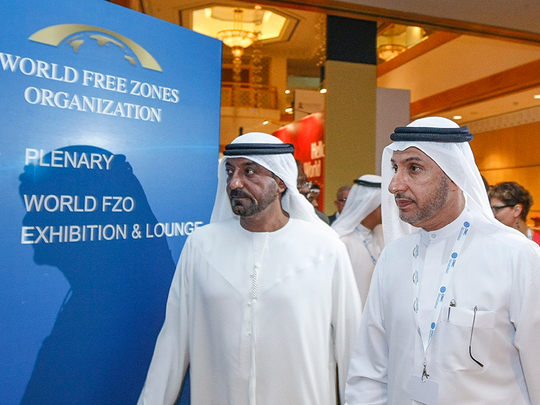
Dubai: Establishing a business and starting operations are the main challenges inside free zones worldwide, officials from the United Nations Conference on Trade and Development (UNCTAD) told Gulf News.
“To set up and operate a business inside the free zones is still complex everywhere,” Frank Grozel, Coordinator of Business Facilitation Programme at the UNCTAD said during the first day of the first International Conference and Exhibition of the World Free Zone Organisation in Dubai.
A free zone is a very supportive tool for economic development, investment and job creation and a big difference can be made if world governments work on easing their free-zone businesses’ procedures, Grozel said.
Each country develop its own free zone rules and regulations in a way that suits their social, economic and geographical pretexts; however, investors usually take their businesses to countries with easier business registration, he said.
“It is not only this; easy registration means less steps, less entities, less cost, less documents and less duration,” he added.
In some countries registering a business might takes a month or more while it should be done in maximum of three days by reducing the number of government institutions involvement and document required for registration, Grozel said.
“Aiming at producing quick and measurable results, UNCTAD-designed Business Facilitation Program is an online system to reduce informality and corruption, to empower small entrepreneurs, to remove bureaucratic barriers to trade and investment and to increase government revenue,” said Vianney Lesaffre at the Business Facilitation Program.
“This system will achieve an 80 per cent reduction of business registration steps, forms and documents by offering a series of efficient tools and participative methodologies to clarify and simply procedures,” he said.
The system is already implemented in 27 countries in several countries in Latin America, Africa and Asia inside and outside the free zones.
“Many countries could escalate their performance in the ease of doing business in a year time,” he said.
According to UNCTAD, each free zone interested to implement this system can have its own portal for eRegulation, to clarify and publicise administrative procedures step by step from the users point of view.
Once clarified, procedures are easier to simplify by comparing the practice to the law and limiting the number of interaction and documents to what is necessary and sufficient.
Then all these details should be automated through a single window allowing single windows simultaneous registration with multiple government entities.












